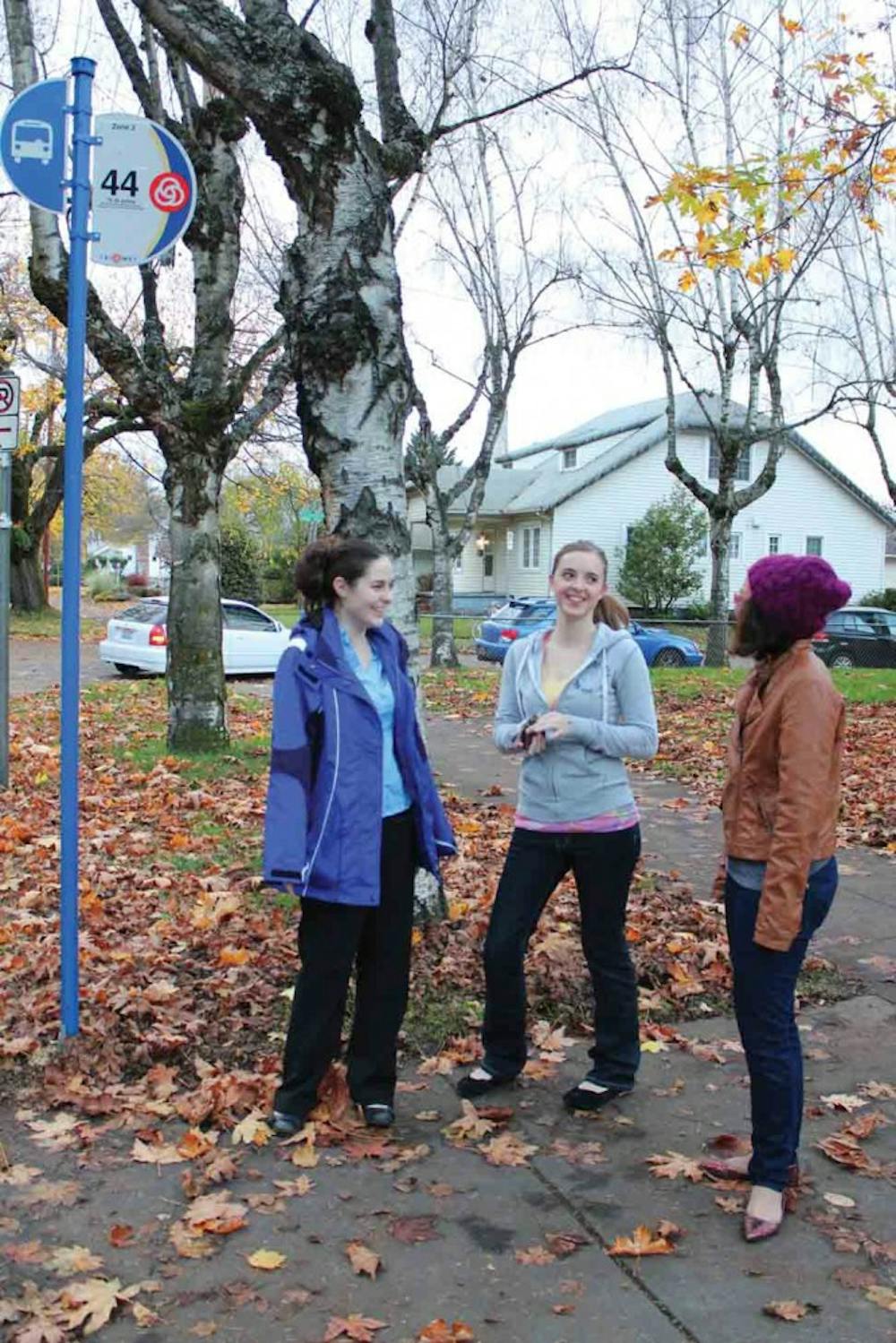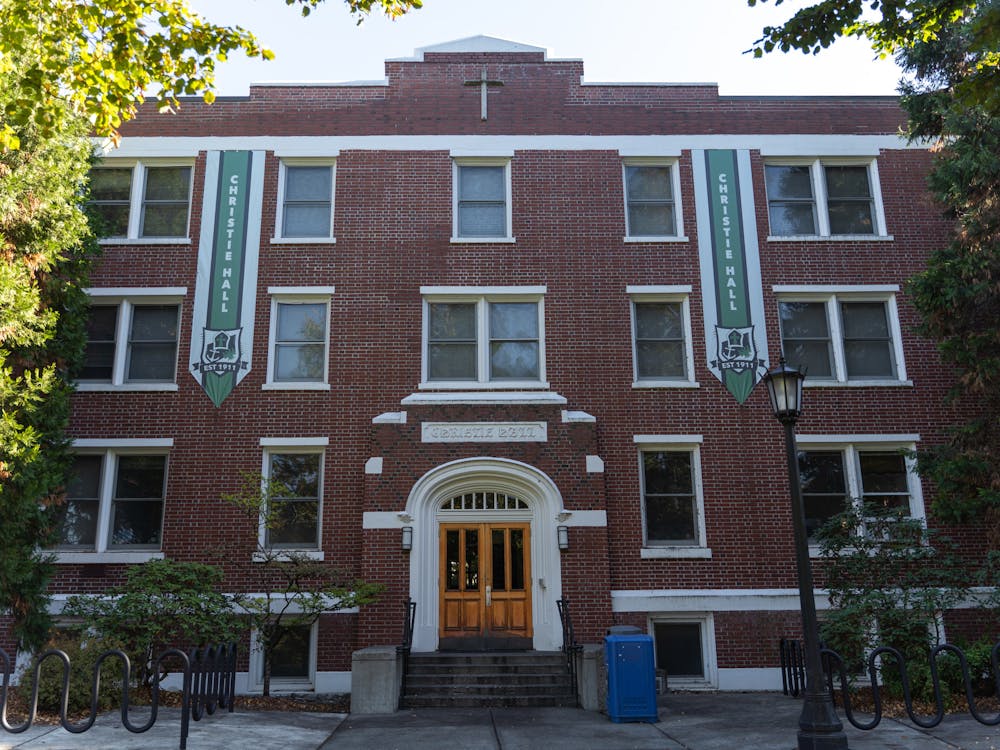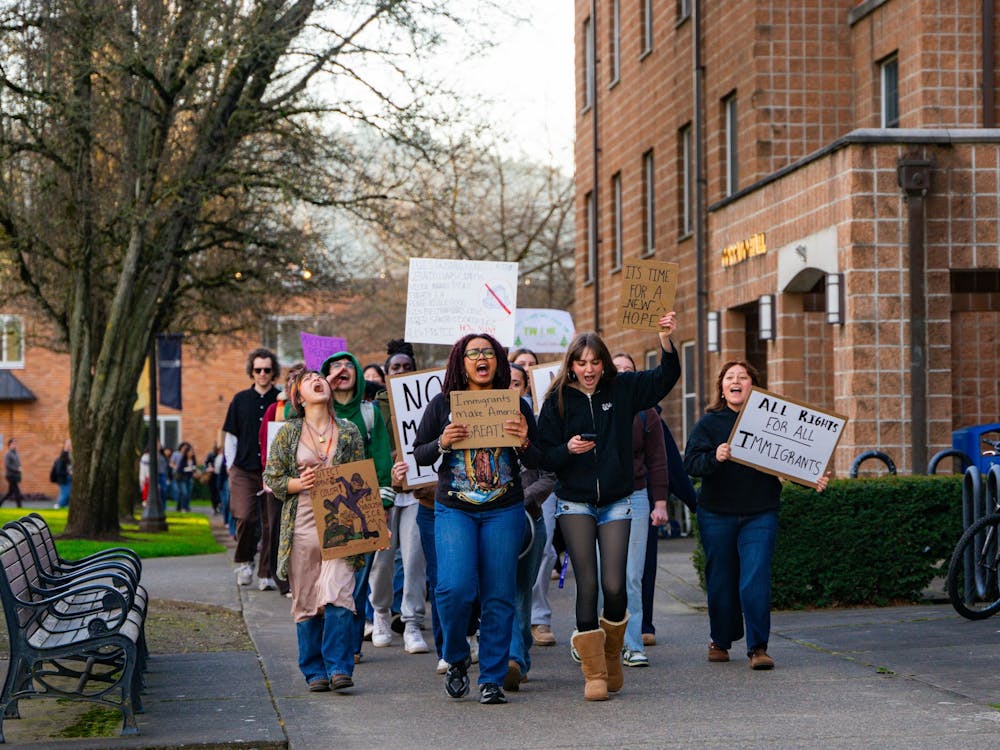Some education majors have to take the bus to their field experience
(Scott Chia -- The Beacon)
By Amands Blas, Staff Writer -- blas13@up.edu
For many underclassmen education majors, what should be a 10-minute car ride to their field experience often turns into a 40-minute excursion.
"It's such a drag to get (to field experience)," Maggie Smet, a freshman education major, said. "And it costs a lot, too."
Field experience is a significant part of the University of Portland's School of Education program. It gives students the chance to step into the classroom and helps them get a feel for teaching.
"The field experience is the best experience we can provide that allows students to take the theory of the (education) field and apply it to the real classroom," education professor Eric Anctil said.
Because freshmen are not allowed to have cars on campus, they and other car-less education majors are forced to use public transportation to get to their field experience.
"There has been concern regarding the time it does take on the bus," field placement director Shirley Loesch said.
"But unfortunately, we have no other way to transport the students to their field experience." The School of Education keeps this in consideration when placing freshmen for their field experience.
"Freshmen are placed within a reasonable bus ride from UP," Loesch said.
For her field experience, Smet was placed at George Middle School, which is a couple of miles away from campus. Though George Middle School is only a seven-minute drive away, Smet said it takes her almost 40 minutes to get back on campus.
According to Smet, this is because the bus makes multiple stops, which includes a 30-minute wait to transfer onto another bus line.
"We have to wait in one of the not-so-safe parts of Portland," Smet said. "I feel it's so unsafe that I wouldn't go to field experience if I knew I'd be waiting alone."
This is not the only problem Smet has encountered with the bus system.
"Sometimes the bus rides are unreliable," Smet said. "And sometimes the buses don't even stop for us."
Other students face similar time and reliability problems when it comes to the bus.
According to freshman education major Christina Tenorio, public transportation is often late or does not come at all.
"We have to schedule our classes to make sure we have enough time for field experience," Tenorio said. "And it's really hard to do that, considering the problems with the bus."
Students also face issues with the expenses that go along with travelling to field experience.
Ka'iu Moku-Paiva, a sophomore education major, goes to field experience two times a week. She spends as much as $40 a month on bus passes to get to her field experience.
"It's so irritating how the school doesn't provide us any type of reimbursement," Moku-Paiva said. "We're forced to spend money on the bus."
Anctil acknowledges that students complain about riding the bus to field experience from time to time.
"They know riding the TriMet is part of how many of them get to their field placements, and it's important," Anctil said.
"The field placement is a critical part of what makes the UP School of Education program so strong and reputable," Anctil said. "So they put up with the inconvenience of riding the bus. Beyond that, it's never been a problem."
Smet agrees about the value of field experience.
"We're definitely not complaining about being in the classroom," Smet said. "The main thing is just getting there and having to deal with that."
Despite the transportation issues, many students understand that the benefits of field experience outweigh the negative aspects.
"In general, the overwhelming feedback I get from students, freshmen included, is that their field experiences define their experience in the program," Anctil said.








